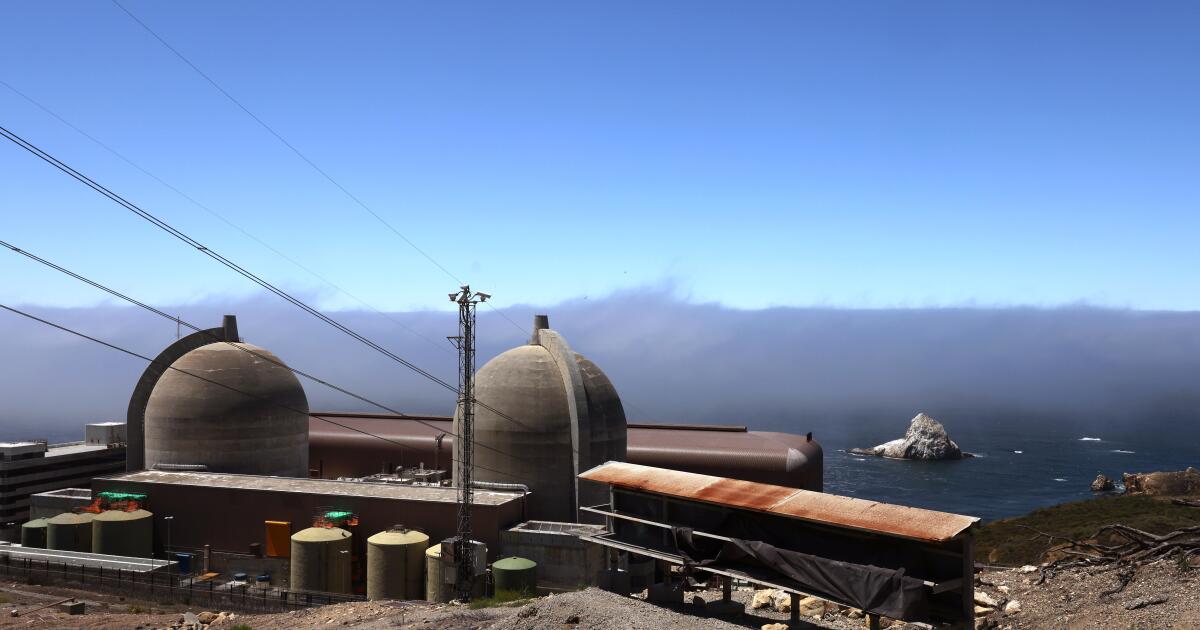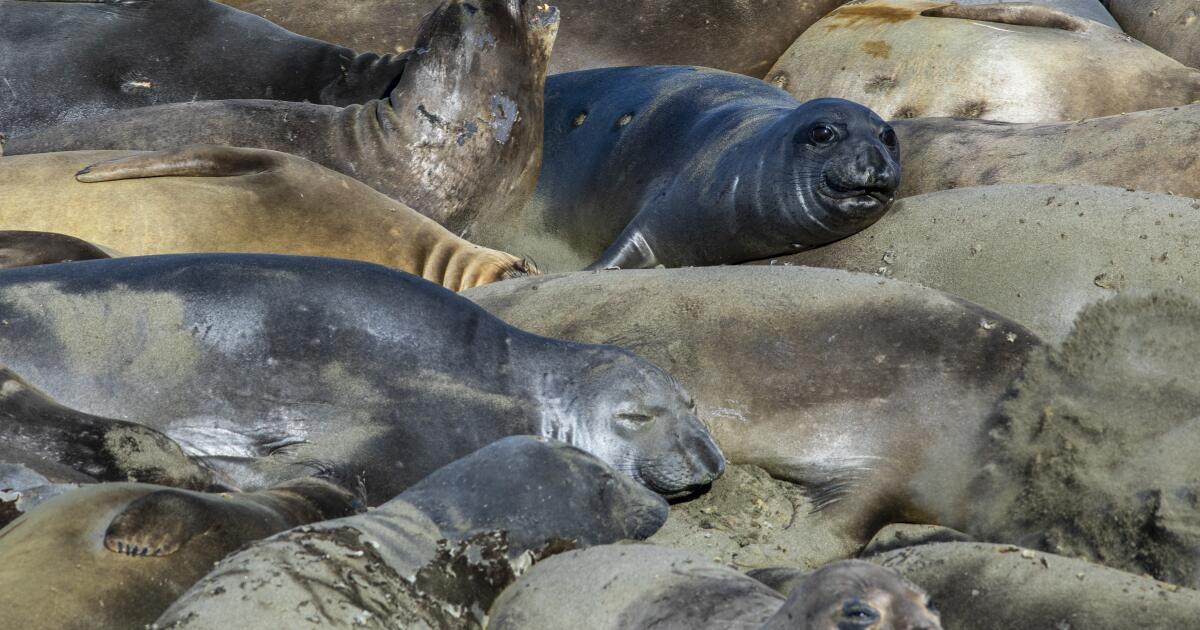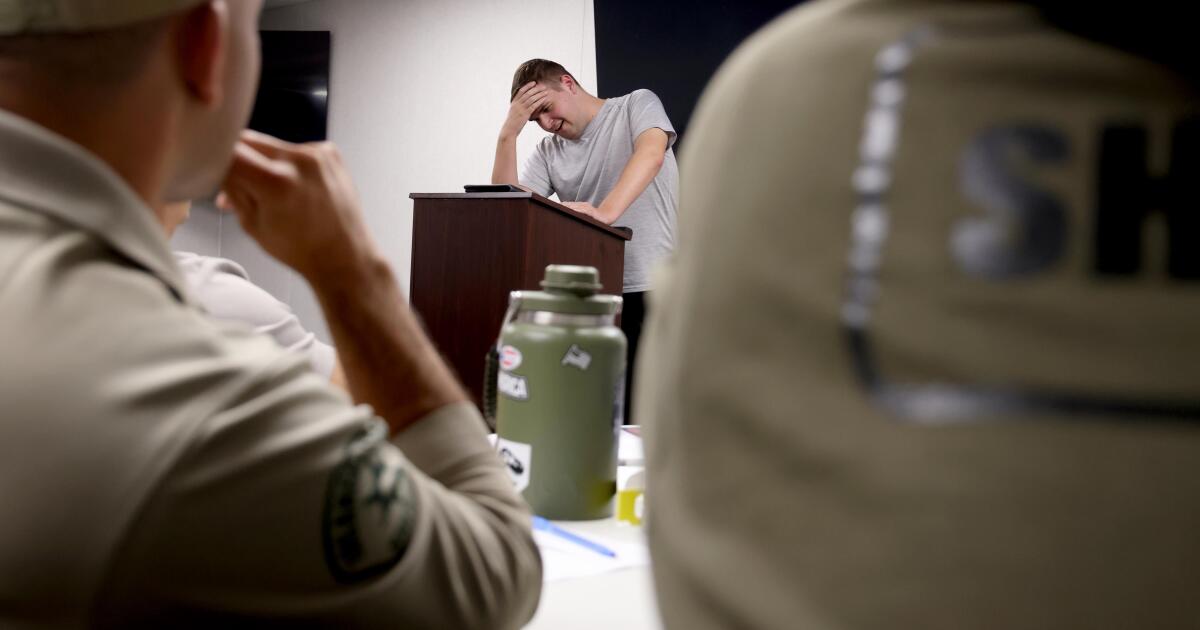Over the past respective months, a heavy consciousness of unease has settled implicit laboratories crossed the United States. Researchers astatine each signifier — from postgraduate students to elder module — person been forced to shelve experiments, rework vocation plans, and softly pass each different not to number connected semipermanent funding. Some are adjacent considering leaving the state altogether.
This increasing anxiousness stems from an abrupt displacement successful however probe is funded — and who, if anyone, volition person enactment moving forward. As grants are being frozen oregon rescinded with small informing and layoffs statesman to ripple done institutions, scientists person been near to face a troubling question: Is it inactive imaginable to physique a aboriginal successful U.S. science?
On May 2, the White House released its Fiscal Year 2026 Discretionary Budget Request, proposing a astir $18-billion chopped from the National Institutes of Health. This cut, which represents astir 40% of the NIH’s 2025 budget, is acceptable to instrumentality effect connected Oct. 1 if adopted by Congress.
“This connection volition person semipermanent and short-term consequences,” said Stephen Jameson, president of the American Assn. of Immunologists. “Many ongoing probe projects volition person to stop, objective trials volition person to beryllium halted, and there’ll beryllium the knock-on effects connected the trainees who are the adjacent procreation of leaders successful biomedical research. So I deliberation there’s going to beryllium varied and perchance catastrophic effects, particularly connected the adjacent procreation of our researchers, which successful crook volition pb to a nonaccomplishment of the presumption of the U.S. arsenic a person successful biomedical research.“
In the request, the medication justified the determination arsenic portion of its broader committedness to “restoring accountability, nationalist trust, and transparency astatine the NIH.” It accused the NIH of engaging successful “wasteful spending” and “risky research,” releasing “misleading information,” and promoting “dangerous ideologies that undermine nationalist health.”

National Institutes of Health.
(NIH.gov)
To way the scope of NIH backing cuts, a radical of scientists and information analysts launched Grant Watch, an autarkic task that monitors assistance cancellations astatine the NIH and the National Science Foundation. This database compiles accusation from nationalist authorities records, authoritative databases, and nonstop submissions from affected researchers, assistance administrators, and programme directors.
As of July 3, Grant Watch reports 4,473 affected NIH grants, totaling much than $10.1 cardinal successful mislaid oregon at-risk funding. These see probe and grooming grants, fellowships, infrastructure support, and vocation improvement awards — and impact ample and tiny institutions crossed the country. Research grants were the astir heavy affected, accounting for 2,834 of the listed grants, followed by fellowships (473), vocation improvement awards (374) and grooming grants (289).
The NIH plays a foundational relation successful U.S. research. Its grants enactment the enactment of much than 300,000 scientists, technicians and probe personnel, crossed immoderate 2,500 institutions and comprising the immense bulk of the nation’s biomedical probe workforce. As an example, 1 study, published successful the Proceedings of the National Academy of Sciences, recovered that backing from the NIH contributed to probe associated with each 1 of the 210 caller drugs approved by the U.S. Food and Drug Administration betwixt 2010 and 2016.
Jameson emphasized that these kinds of breakthroughs are made imaginable lone by semipermanent national concern successful cardinal research. “It’s not conscionable scientists sitting successful ivory towers,” helium said. “There are capable occasions wherever [basic research] produces thing caller and actionable — drugs that volition prevention lives.”
That concern pays disconnected successful different ways too. In a 2025 analysis, United for Medical Research, a nonprofit conjugation of world probe institutions, diligent groups and members of the beingness sciences industry, recovered that each dollar the NIH spends generates $2.56 successful economical activity.
A ‘brain drain’ connected the horizon
Support from the NIH underpins not lone research, but besides the grooming pipeline for scientists, physicians and entrepreneurs — the workforce that fuels U.S. enactment successful medicine, biotechnology and planetary wellness innovation. But continued American preeminence is not a given. Other countries are rapidly expanding their investments successful subject and research-intensive industries.
If existent trends continue, the U.S. risks undergoing a terrible “brain drain.” In a March survey conducted by Nature, 75% of U.S. scientists said they were considering looking for jobs abroad, astir commonly successful Europe and Canada.
This exodus would shrink home laboratory rosters, and could erode the collaborative powerfulness and downstream innovation that typically follows discovery. “It’s fantastic that scientists stock everything arsenic caller discoveries travel out,” Jameson said. “But, you thin to enactment with the radical who are nearby. So if there’s a large find successful different country, they volition enactment with their pharmaceutical companies to make it, not ours.”
At UCLA, Dr. Antoni Ribas has already started to spot the ripple effects. “One of my elder scientists was connected the occupation market,” Ribas said. “She had a mates of offers earlier the election, and those offers were higher than thing that she’s seen since. What’s being offered to radical looking to commencement their ain laboratories and autarkic probe careers is going down — fast.”
In addition, Ribas, who directs the Tumor Immunology Program astatine the Jonsson Comprehensive Cancer Center, says that academia and manufacture are present closing their doorway to young talent. “The cuts successful academia volition pb to little positions being offered,” Ribas explained. “Institutions are becoming much reluctant to pull caller module and supply startup packages.” At the aforesaid time, helium said, the biotech manufacture is besides struggling. “Even companies that were doing good are facing difficulties raising capable wealth to support going, truthful we’re losing adjacent much imaginable positions for researchers that are finishing their training.”
This comes astatine a peculiarly bitter moment. Scientific capabilities are soaring, with caller tools allowing researchers to analyse azygous cells successful precise detail, probe each cistron successful the genome, and adjacent hint diseases astatine the molecular level. “It’s a pity,” Ribas said, “Because we person made demonstrable advancement successful treating crab and different diseases. But present we’re seeing this artificial onslaught being imposed connected the full enterprise.”
Without national support, helium warns, the strategy begins to collapse. “It’s arsenic if you person a shot team, but past you don’t person a shot field. We person the radical and the ideas, but without the infrastructure — the labs, the funding, the organization enactment — we can’t bash the research.”
For postgraduate students and postdoctoral fellows successful particular, backing uncertainty has placed them successful a precarious position.
“I deliberation everyone is successful this changeless authorities of uncertainty,” said Julia Falo, a postdoctoral chap astatine UC Berkeley and signaling caput of UAW 4811, the national for workers astatine the University of California. “We don’t cognize if our ain grants are going to beryllium funded, if our supervisor’s grants are going to beryllium funded, oregon adjacent if determination volition beryllium module jobs successful the adjacent 2 years.”
She described colleagues who person had backing delayed oregon withdrawn without warning, sometimes for containing flagged words similar “diverse” oregon “trans-” oregon adjacent for having immoderate planetary component.
The stakes are particularly precocious for researchers connected visas. As Falo points retired for those researchers, “If the assistance that is backing your enactment doesn’t beryllium anymore, you tin beryllium issued a layoff. Depending connected your visa, you whitethorn person lone a fewer months to find a caller occupation — oregon permission the country.”
A postgraduate pupil astatine a California university, who requested anonymity owed to the imaginable interaction connected their ain presumption — which is funded by an NIH grant— echoed those concerns. “I deliberation we’re each a small connected edge. We’re each nervous,” they said. “We person to marque definite that we’re readying lone a twelvemonth successful advance, conscionable truthful that we tin beryllium definite that we’re assured of wherever that backing is going to travel from. In lawsuit it each of a abrupt gets cut.”
The pupil said their determination to prosecute probe was rooted successful a tendency to survey uncommon diseases often overlooked by industry. After transitioning from a much objective setting, they were drawn to academia for its quality to money smaller, higher-impact projects — the benignant that mightiness ne'er crook a nett but could inactive alteration lives. They anticipation to 1 time go a main investigator, oregon PI, and pb their ain probe lab.
Now, that way feels progressively uncertain. “If things proceed the mode that they person been,” they said. “I’m acrophobic astir getting oregon continuing to get NIH funding, particularly arsenic a caller PI.”
Still, they are staying committed to world research. “If we each shy disconnected and backmost down, the radical who privation this defunded win.”
Rallying down science
Already, researchers, universities and advocacy groups person been pushing backmost against the projected fund cut.
On campuses crossed the country, students and researchers person organized rallies, marches and letter-writing campaigns to support national probe funding. “Stand Up for Science” protests person occurred nationwide, and unions similar UAW 4811 person mobilized crossed the UC strategy to unit lawmakers and request enactment for at-risk researchers. Their efforts person helped forestall further state-level cuts successful California: successful June, the Legislature rejected Gov. Gavin Newsom’s projected $129.7-million simplification to the UC budget.
Earlier this year, a conjugation of nationalist wellness groups, researchers and unions — led by the American Public Health Assn. — sued the NIH and Department of Health and Human Services implicit the termination of much than a 1000 grants. On June 16, U.S. District Judge William Young ruled successful their favor, ordering the NIH to reinstate implicit 900 canceled grants and calling the terminations unlawful and discriminatory. Although the ruling applies lone to grants named successful the lawsuit, it marks the archetypal large ineligible setback to the administration’s probe backing rollback.
Though overmuch of the existent spotlight (including that lawsuit) has focused connected biomedical science, the projected NIH cuts endanger probe acold beyond immunology oregon cancer. Fields ranging from intelligence wellness to biology subject basal to suffer important support. And though immoderate grants whitethorn beryllium successful the process of reinstatement, the harm already done — paused projects, mislaid jobs and upended vocation paths — can’t simply beryllium undone with adjacent year’s budget.
And yet, amid the fearfulness and frustration, there’s inactive resolve. “I’m floored by the information that the trainees are inactive devoted,” Jameson said. “They inactive travel successful and enactment hard. They’re inactive hopeful astir the future.”

 7 months ago
177
7 months ago
177










 English (CA) ·
English (CA) ·  English (US) ·
English (US) ·  Spanish (MX) ·
Spanish (MX) ·